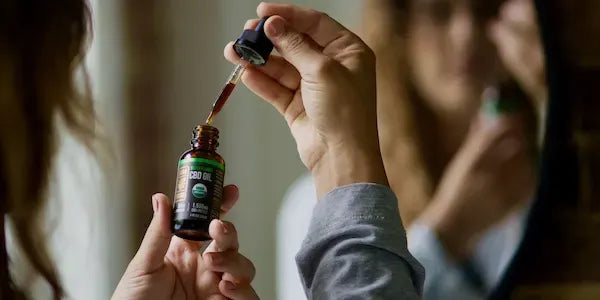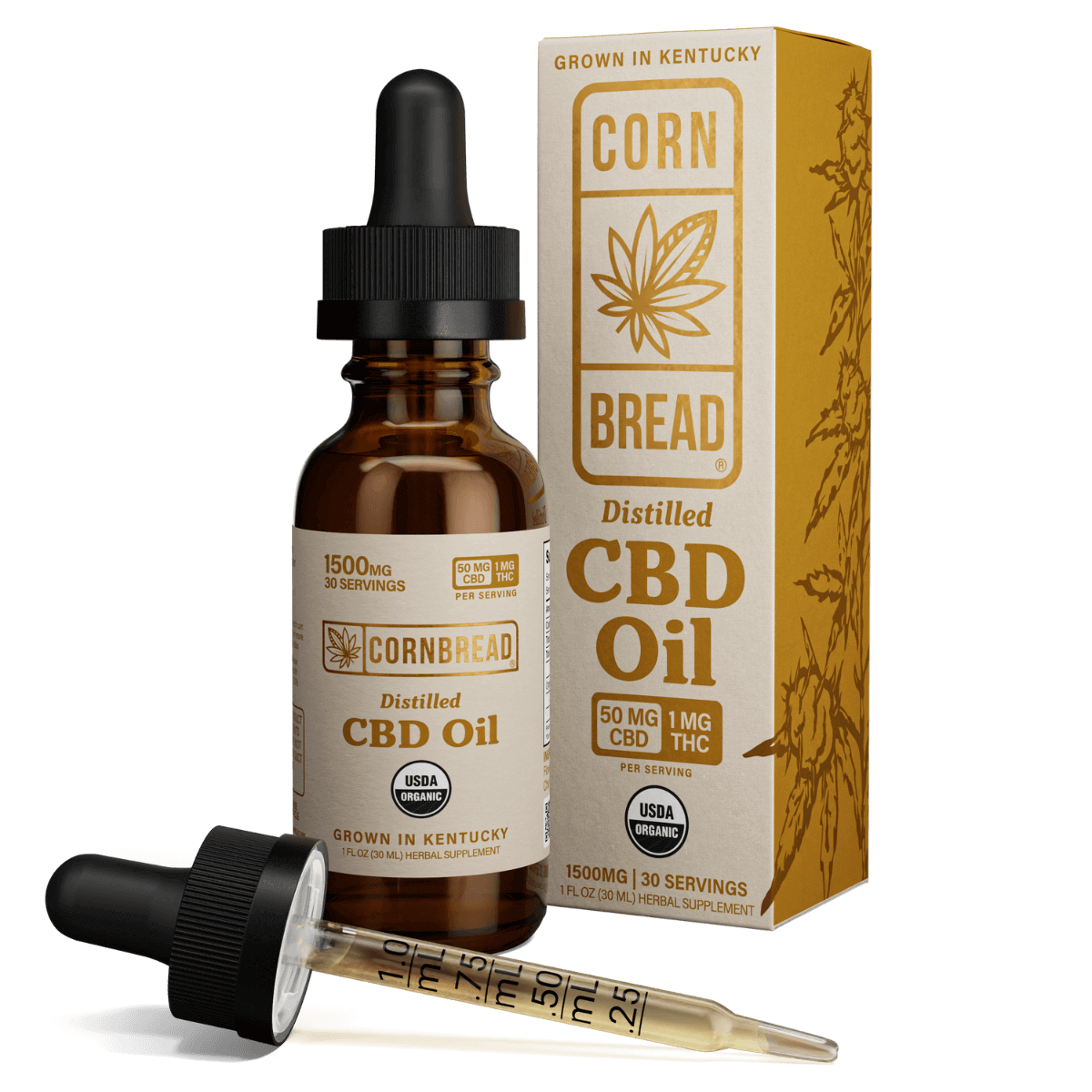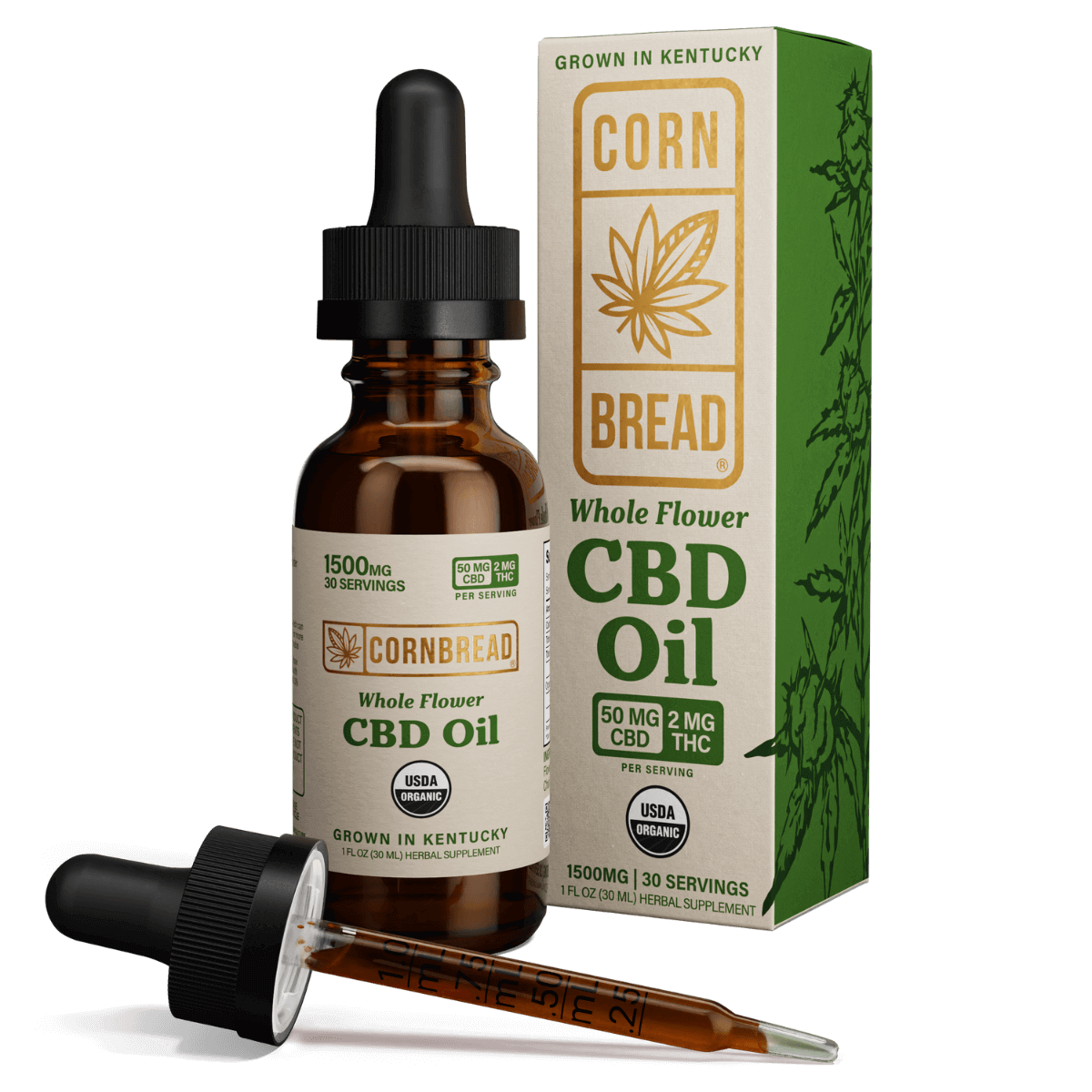Table of Contents
- INTRODUCTION
- WHAT IS CBD?
- WHAT IS THE ECS?
- WHAT IS CBD OIL?
- WHAT DEFINES A CBD TINCTURE
- HOW ARE CBD OILS AND CBD TINCTURES SIMILAR?
- CBD OIL VS TINCTURE? WHICH IS BETTER?
- HOW TO FIND THE BEST CBD OIL
- USDA ORGANIC CERTIFICATION & THIRD PARTY LAB REPORTS
- WHERE TO FIND TRUE CBD PRODUCTS
- WHY DOES FULL SPECTRUM CBD OIL WORK BEST?
- CBD DOSAGE
- THE DIFFERENCE BETWEEN CBD TINCTURE VS CBD OIL: THE BOTTOM LINE
INTRODUCTION
The CBD industry has exploded with different CBD products to add to your wellness routine. CBD oil producers and retailers often use the terms “CBD oil” and “CBD tincture” interchangeably. However, there are many characteristics that distinguish them from each other.
It’s important to know the difference between CBD oil and CBD tincture so you know what you are getting when you are buying CBD products.
What is CBD?
Before we get into how CBD oils and CBD tinctures compare and contrast, what exactly is CBD and how might it affect human health? Recent studies on the properties of compounds found in the cannabis hemp plant may revolutionize the way we approach therapeutic relief.
The compound CBD, short for cannabidiol,1 is a non-psychoactive chemical that has the potential to have a wide range of benefits for the body. These compounds are unique to the cannabis plant, but the human body already produces a set of our own. Scientists call the body system that is impacted by these cannabinoids the “endocannabinoid system.”
What is the ECS?
The endocannabinoid system, or ECS for short, is a network of receptors overlaying the nervous system. These receptors are found all throughout the body and its organs. Scientists discovered that these receptors react positively to compounds made by the body that they called “endocannabinoids.” The reaction of these receptors to the endocannabinoids may help bring the body into balance. The compounds found in the cannabis plant like CBD and THC mimic endocannabinoids we already produce, which is why CBD from hemp flower is now at the forefront of wellness research.
The passage of the 2018 Farm Bill made it legal for farmers to grow industrial hemp with no more than 0.3 percent THC nationwide.2 This also opened the door for companies to manufacture and sell hemp-based products, such as full spectrum CBD tincture, CBD oil, and more.
Some have concerns about the THC content of their hemp-derived products, however, there is not enough THC in legal CBD products to get you high. In fact, a little bit of THC helps CBD oil or CBD tincture work better.
What is CBD Oil?
To manufacture full spectrum CBD oil from the hemp plant, cannabinoid compounds, terpenes, and other valuable properties are first extracted from the plant material.3 Most companies use clean methods of extraction by using the CO2 extraction method4 or with gentle solvents like sugarcane ethanol.5 The extract is then mixed with a carrier oil6 and is bottled for sale. Pure CBD oil is rich in cannabinoids, fatty acids, and other essential nutrients from the plant.
CBD oil is extremely versatile and has numerous applications. It can be taken sublingually as an oil or ingested as capsules. It can also be added to topicals and edibles. The flexibility in working with CBD oil makes it more common in the health market, especially because you cannot overdose on CBD.
With CBD oil, the fewer ingredients the better it will be. Be wary of a CBD oil with lots of additives! The primary ingredients found in CBD oil are hemp extract and carrier oils. The choice of carrier oils varies by company. Some companies choose to use hemp seed oil or olive oil.
Cornbread Hemp uses organic MCT coconut oil because it provides greater bioavailability. This allows the MCT oil to increase how much CBD you absorb. It also has a better shelf life than other carriers.
A high-quality CBD hemp oil will have a pleasant earthy taste with no harshness or bitterness. And it will not need added flavors or sweeteners to make it palatable.

What Defines a CBD Tincture
The word “tincture” is defined as medicine made by dissolving a drug or plant matter in alcohol.8 CBD companies make alcohol-based CBD tinctures by soaking the raw hemp material in alcohol and water, sometimes heating it slowly to let it steep like tea. Over time, the alcohol solution leeches out all of the natural compounds of the plant. The plant matter is strained from the solution, and the liquid is usually mixed with flavors like peppermint oil or other additives.
CBD tinctures tend to have more added ingredients than CBD oils. The alcohol-based solution is usually combined with any number of other ingredients, such as additional flavoring, sweeteners, essential nutrients, and vegetable glycerin.
Some companies even add:
- vitamins,
- herbal extracts,
- essential oils,
- melatonin
- and other supplements.
Like CBD oils, you can take alcohol-based CBD tinctures sublingually or add them to foods and beverages.9
But buyer beware: there are companies that intentionally produce products that appear to be CBD infused, but they are actually just made with hemp seed oil, which has no CBD content at all. You must look at the product's third party lab analysis to be sure you have a genuine CBD product and not one just made of hemp seed oil.
How are CBD Oils and CBD Tinctures Similar?
A lot of consumers have trouble telling CBD oil vs tinctures because they are often packaged the same - usually in brown-tinted dropper bottles. Because of this, it’s very important to study the ingredients carefully to determine if you are holding a CBD oil vs tincture.
The application methods are also similar, both CBD oils and CBD tincture can be taken orally with a dropper, and they are both purported to have the same effects associated with cannabis-derived products. Although they serve a similar purpose, they differ in many ways.
CBD oil vs Tincture? Which is Better?
The main difference between CBD oils and CBD tinctures is the production process and how many ingredients they each contain.
When making CBD oil, the extraction process results in a substance made of pure plant compounds with no residual solvents left behind. High-quality CBD oils will contain only CBD-rich hemp extract and carrier oil.
CBD tinctures are made similar to traditional medicines: by steeping the plant matter in alcohol, straining it, and then bottling the entire solution. Tinctures usually contain additional ingredients, and may have a longer shelf life. An easy way to tell the difference is by seeing if the contents have an oil base (CBD oil) or an alcohol base (CBD tincture).
So in the battle of CBD oil vs CBD tincture, which is the better choice?
CBD oils and CBD tincture can both be effective, so it is up to the consumer’s preference when choosing between them. Tinctures are a popular choice for those who do not like the taste or feel of oil,10 or those who want to add it to food. Customers who want the highest potency, or those who are alcohol-sensitive, will prefer to use CBD oils.
How to Find the Best CBD Oil
When choosing CBD oils and CBD tinctures it is important to find reputable CBD oil manufacturers who produce a clean, safe product that is sourced locally. Buying products that source their raw materials from local hemp farms in the USA greatly increases the chance that you are purchasing a safe, quality product.
Since the hemp industry is new, there are no official regulations in place to ensure that CBD products are safe to ingest. An unscrupulous company could buy pesticide-treated plants, use toxic solvents for extraction, and then sell the concoction without rigorous testing. Due to the lack of federal accountability, consumers should definitely be vigilant when researching hemp products for safety.
USDA Organic Certification & Third Party Lab Reports
The best certification to look for when you are looking for clean, safe hemp products for yourself or a family member is the USDA organic seal. CBD products with official USDA organic certification source their raw material from plants grown without the use of pesticides, fungicides, or any other toxins.7 The extraction method must also be a certified organic process, and the carrier oil must be organic for the product to carry the official seal.
When researching CBD brands, make sure that third-party lab reports are easily accessible on the company’s website. Full test analysis certificates should include safety reports and CBD content, plus the level of THC and minor cannabinoids. They should also include a passing grade on all safety tests for pesticides, microbial contaminants, toxins, heavy metals, and residual solvents.
If you study the quality of different brands' reports, you’ll see that some companies haphazardly scan out-of-date lab results and post them without any context for the consumer to understand them. Proper lab reports and test analysis should be up to date, tamper-proof, and detailed. You can also discover which brands are selling the most potent CBD products by comparing these reports, so you’ll know if you are getting your money’s worth.
Where to Find True CBD Products
Cornbread Hemp sets the gold standard for having the best customer service and producing the best CBD possible. We source our raw material from Kentucky organic farmers in the American heartland. In the 1800s and early 1900s, Kentucky was among the nation’s top producers of hemp. The climate is optimal for cannabis growth, and the limestone-rich water supply is adequate enough to be sustainable without implementing destructive irrigation techniques. For our CBD oils, we use organic non-GMO hemp flowers grown without the use of chemical pesticides or any other toxic chemicals.
While the supercritical carbon dioxide extraction method is clean and safe, it produces a harsh, bitter taste of the product. We extract our CBD oils using organic sugarcane ethanol. This manufacturing process allows the finished product to have a smooth taste. We mix our extract with organic MCT coconut oil for the best CBD absorption rate. Also included in our product line are CBD + THC gummies, CBD cream, CBD capsules, CBD oil for pets, and full spectrum CBD oil for sale.
Third-party lab reports are available on Cornbread Hemp’s website. Full COA's and test results are also easily accessible via a scannable QR code on every product. Each label also carries a CannVerify anti-counterfeiting hologram to further ensure the authenticity of our merchandise.
Why Does Full Spectrum CBD Oil Work Best?
aStudies show that the ECS responds the best to full spectrum CBD oil. This is CBD oil that contains all of the cannabinoids present in hemp. Broad spectrum CBD oil has had the THC removed, and a CBD isolate is the single cannabinoid CBD by itself. While people may think they just need CBD by itself to work, it actually needs all of the other cannabinoids, too.
Full spectrum CBD oils and CBD tinctures have the potential to cause you to fail a drug test. Full spectrum products contain trace amounts of THC, less than 0.3 percent. This does not mean that broad spectrum and CBD isolate will pass a drug test, though. Some drug screenings will register CBD as if it were THC, so there is a possibility that you can still test positive even if your product is pure CBD or THC-free broad spectrum.
CBD Dosage
The dosage of CBD that you should take depends on your body weight. We like to recommend beginning CBD dosing with 25mg/ml a day. After a few weeks of taking CBD in regular doses, you can choose to increase or decrease the amount of CBD you take to suit your individual response.
Keep a journal tracking when you use CBD, how much you take, and how your target areas feel. Then, it will be easier to monitor your progress and adjust your dosage or routine accordingly.
Those who use CBD broad spectrum products often reach a plateau in their results. Switching to full spectrum will often break the plateau and allow them to experience the full potential of their CBD product.
The difference between CBD Tincture vs CBD Oil: the Bottom Line
Companies and retailers may use “CBD oil” and “CBD tincture” interchangeably, but they refer to different hemp products with different manufacturing processes that contain different ingredients. Knowing the terminology and what to look for in each can help consumers buy the CBD product that they are looking for, whether it's CBD oil, CBD tincture, CBD topicals, or CBD capsules. There is a perfect CBD product out there for you.
250 years of hemp and marijuana farming traditions led to the first USDA organic certified CBD oil in Kentucky. The best way to know you are buying a high-quality, all-American, full spectrum CBD product, is by shopping at Cornbread Hemp.










 Log in
Log in





















